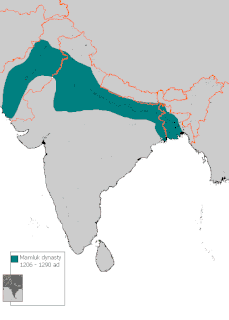 W
WMamluk is a term most commonly referring either to slave soldiers, freed slaves, Muslim converts assigned to military and administrative duties, and Muslim rulers of slave origin.
 W
WMuḥammad Bey Abū aḏ-Ḏahab (1735–1775), also just called Abū Ḏahab, was a Mamluk emir and regent of Ottoman Egypt.
 W
WIzz al-Din Aydamir al-Jildaki, also written al-Jaldaki was an Egyptian alchemist from 14th century Mamluk Sultanate.
 W
WAli Bey al-Kabir (Mgebrishvili) (1728–1773) was a Mamluk leader in Egypt. Nicknamed Jinn Ali and Bulut Kapan ("Cloud-Catcher"), Ali Bey rose to prominence in 1768 when he rebelled against his Ottoman rulers, making the Egypt Eyalet of the Ottoman Empire independent for a short time. His rule ended following the insubordination of his most trusted general, Abu al-Dahab, which led to Ali Bey's downfall and death.
 W
WBadr al-Din Lu'lu' was successor to the Zengid emirs of Mosul, where he governed in variety of capacities from 1234-1259 following the death of Nasir ad-Din Mahmud. He was the first mamluk to transcend servitude and become an emir in his own right, anticipating the rise of the Bahri Mamluks to the sultanate of Egypt by twenty years. He preserved control of al-Jazira through a series of tactical submissions to larger neighboring powers, at various times recognizing Ayyubid, Seljuqs of Rûm, and the Mongol overlords. His surrender to the Mongols spared Mosul the destruction experienced by other settlements in Mesopotamia.
 W
WMurad Bey Mohammed was an Egyptian Mamluk chieftain (Bey), cavalry commander and joint ruler of Egypt with Ibrahim Bey. He is often remembered as being a cruel and extortionate ruler, but an energetic courageous fighter.
 W
WIbrahim Bey was a Mamluk chieftain and regent of Egypt.
 W
WMameluco is a Portuguese word that denotes the first generation child of a European and an Amerindian. It corresponds to the Spanish word mestizo.
 W
WA Mameluke sword is a cross-hilted, curved, scimitar-like sword historically derived from sabres used by Mamluk warriors of Mamluk Egypt after whom the sword is named. Egypt was, at least nominally, part of the Ottoman Empire and the sword most commonly used in Egypt was the same as used elsewhere in the empire, the kilij.
 W
WThe Mamluk Dynasty was directed into Northern India by Qutb ud-Din Aibak, a Turkic Mamluk general from Central Asia. The Mamluk Dynasty ruled from 1206 to 1290; it was the first of five unrelated dynasties to rule as the Delhi Sultanate till 1526. Aibak's tenure as a Ghurid dynasty administrator lasted from 1192 to 1206, a period during which he led invasions into the Gangetic heartland of India and established control over some of the new areas.
 W
WRoustam Raza, also known as Roustan or Rustam, was Napoleon's mamluk bodyguard and secondary valet.